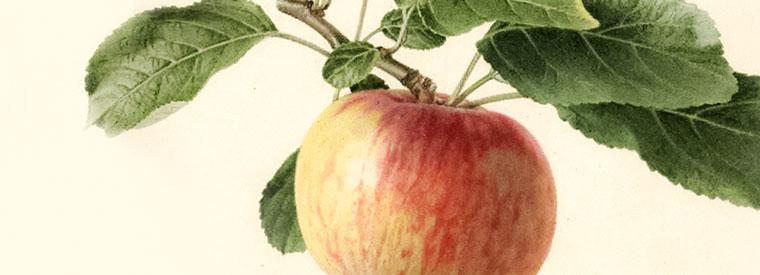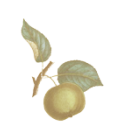From the founding of Jamestown to the time of Washington and Jefferson, every plantation owner made cider, drank cider, and bragged about his cider.

Fruit
GOLDEN DELICIOUS is also known as Yellow Delicious, and there are many strains, sports and cultivars. It is the second most popular dessert apple in the United States, and appeared in 1912 as a chance seedling on the farm of Anderson Mullins in Clay County, West Virginia. Probably, it resulted from a Grimes Golden pollinated by an unknown pollen parent, speculated to be Golden Reinette. Mullins sold the tree for $5000 in1914 to Stark Brothers Nursery in Missouri, and a steel cage was erected around it to prevent the theft of scionwood for propagation. Usually large and conic in shape, with golden-yellow skin, the flesh is firm, crisp, and juicy with a mild, sweet, and distinctive flavor. The skin is dry and it bruises easily. Control of its natural tendency to russet has been a major concern in commercial production. The bark is a yellowish-olive in color and the folded leaves are waved with sharp serrations. A round-headed tree with wide-angle crotches, if properly thinned, it will bear young and annually, and there are 145 to 155 days from full bloom to maturity. Self-fertile, it is an excellent pollinator for other varieties because of its multiple blooming during midseason. Thinning is necessary to produce large fruit, and the quality of fruit depends on the season. It ripens in September.
Ripening Period
- Early Fall - September


